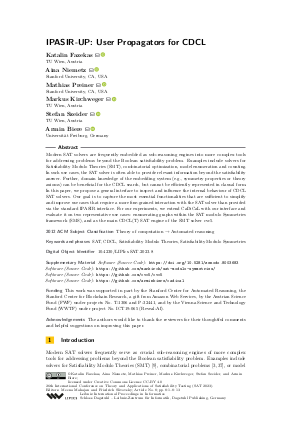LIPIcs.SAT.2023.8.pdf
- Filesize: 0.77 MB
- 13 pages

 Creative Commons Attribution 4.0 International license
Creative Commons Attribution 4.0 International license








Feedback for Dagstuhl Publishing